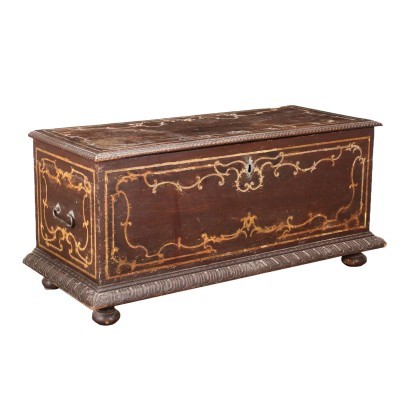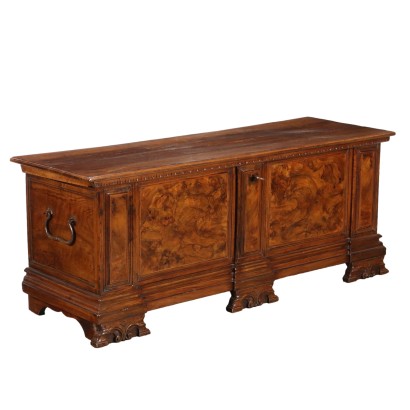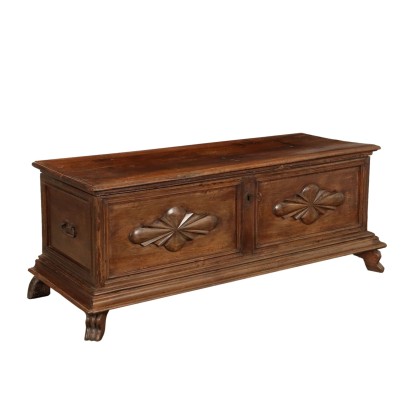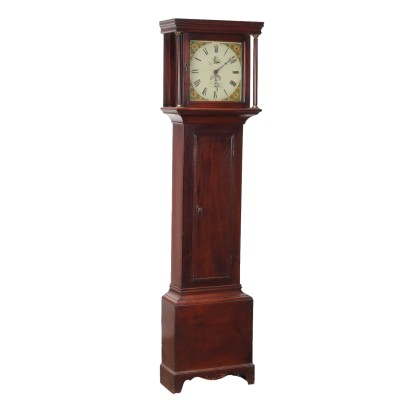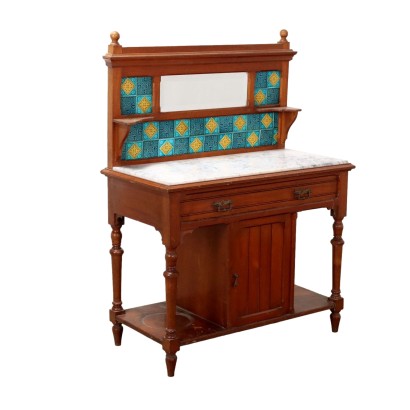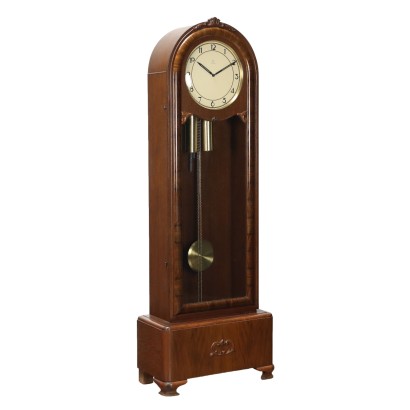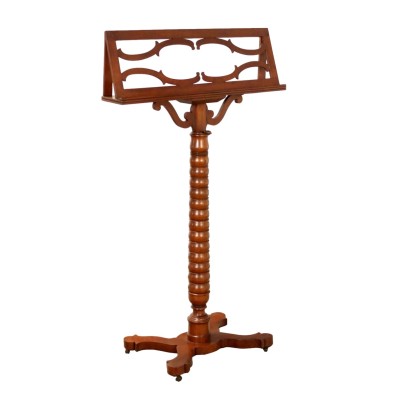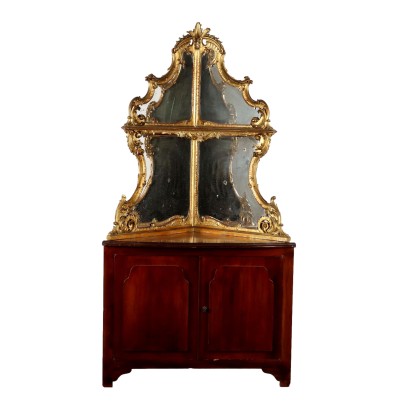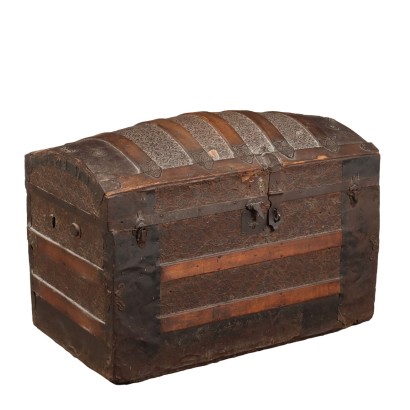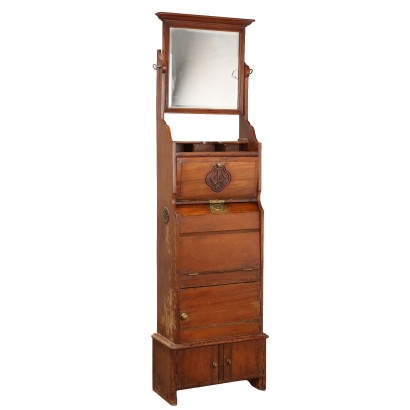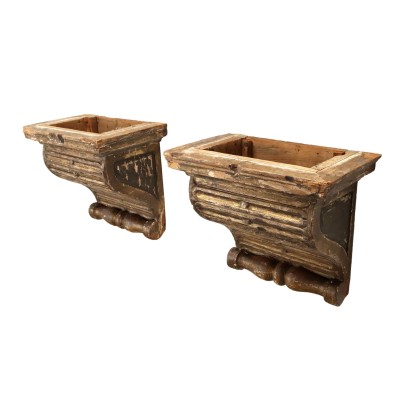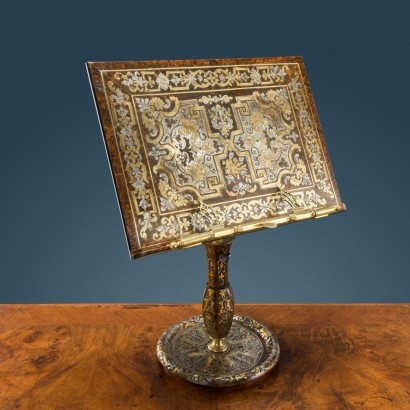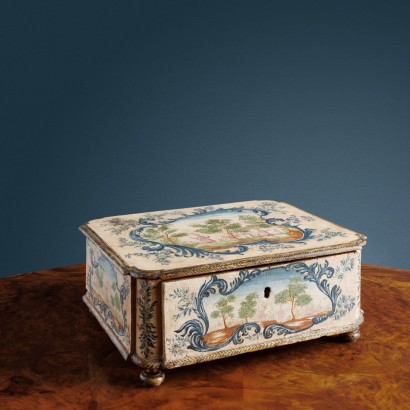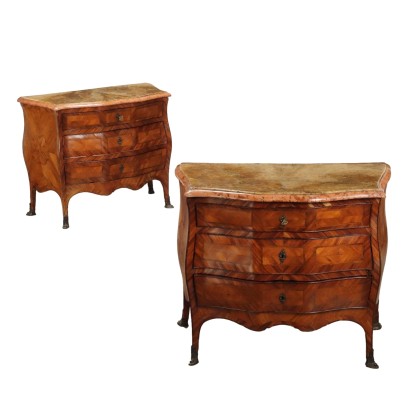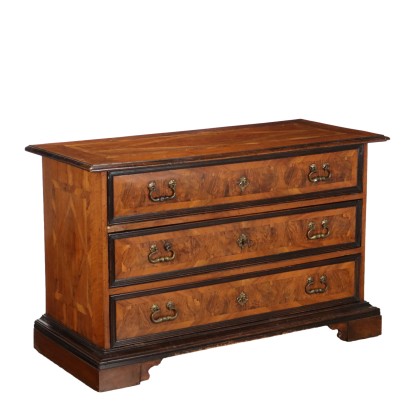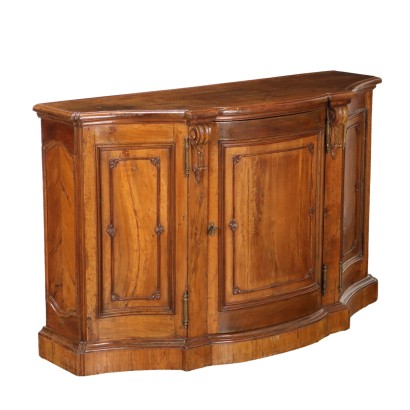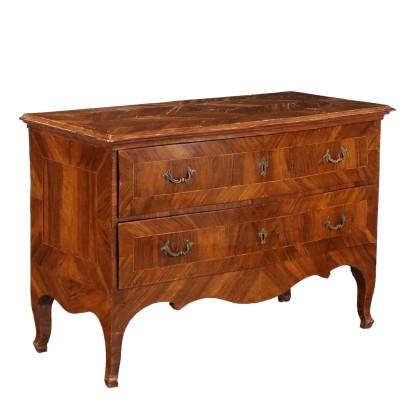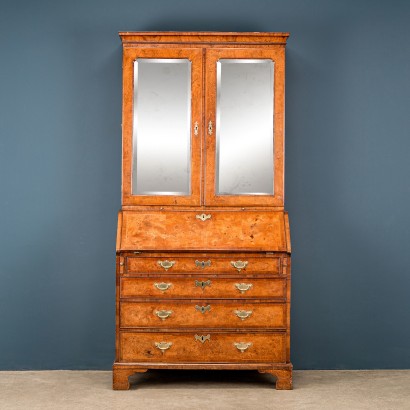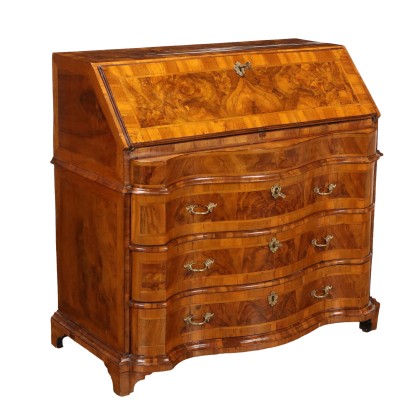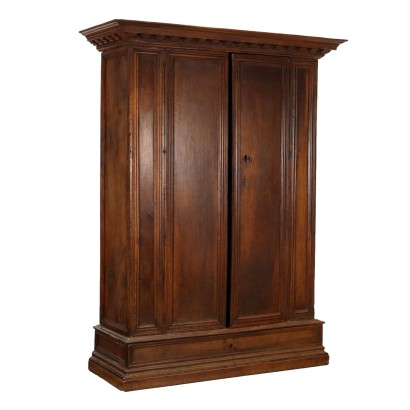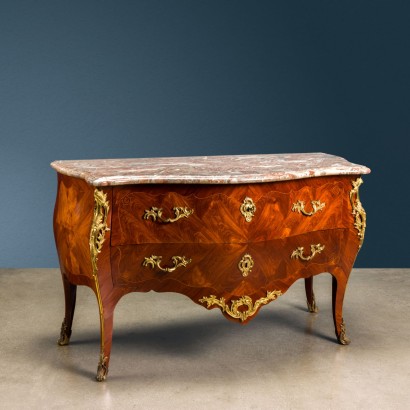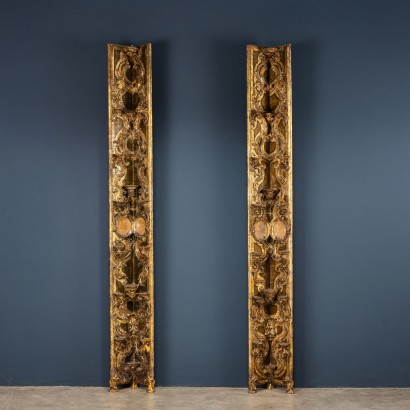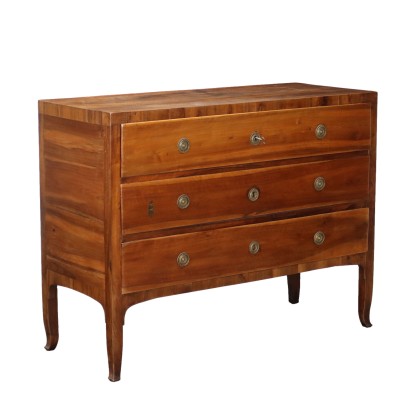Piedmontese Baroque Chest Walnut Italy 18th Century
Features
Style: Baroque (1630-1730)
Age: 18th Century / 1701 - 1800
Origin: Piemonte, Italy
Main essence: Walnut
Description
Piedmontese chest with a frame along the lower band and inlays along the sides and the top. The feet had been replaced.
Product Condition:
The item shows signs of wear due to age. Any damage or loss is displayed as completely as possible in the pictures. It may require restoration and recovery of french polish. Product with a Certificate of Authenticity and Lawful Origin.
Dimensions (cm):
Height: 76
Width: 168
Depth: 69
Additional Information
Style: Baroque (1630-1730)
Read more
The term derives from the Spanish barrueco phoneme or Portuguese barroco and literally means "shapeless pearl".
Already around the middle of the eighteenth century in France it was synonymous with uneven, irregular, bizarre, while in Italy the term was of Medieval memory and indicated a figure of the syllogism, an abstraction of thought.
This historical period was identified with the derogatory term baroque, recognizing in it extravagance and contrast with the criteria of harmony and expressive rigor to which it was intended to return under the influence of Greco-Roman art and the Italian Renaissance.
Baroque, seventeenth-century and seventeenth-century were synonymous with bad taste.
As regards furniture, freedom of ideation, need for pomp and virtuosity gave rise to a synergy destined to produce unsurpassed masterpieces.
The materials used were worthy of competing with the most astonishing tales of Marco Polo: lapis lazuli, malachite, amber, ivory, tortoiseshell, gold, silver, steel, precious wood essences and more dressed the furnishings that in shape and imagination virtually gave life to the Arabian Nights of many of our powerful people.
Typical of the period were load-bearing or accessory parts resolved with twisted column motifs, clearly inspired by Bernini's canopy of St. Peter's, parts with rich sculptural carving in high relief and even in the round within a vortex of volutes, scrolls and spirals, curved and broken profiles, cymatiums agitated by gables of articulated shape, aprons adorned with ornaments, corbels, buttresses and so on. necessary to enliven shapes and structures.
The Baroque is also the century of illusionism: lacquers and thin temperas crowd furniture and furnishings to imitate with the marbling effects of marble veining or games of veining of precious briar roots.
Find out more about the Baroque with our insights:
Classic Monday: a double-body sideboard, late Venetian Baroque
Classic Monday: a pair of candle holders between the Renaissance and Baroque
Classic Monday: a pair of mirrors between Baroque and Late Baroque
Age: 18th Century / 1701 - 1800
18th Century / 1701 - 1800Main essence: Walnut
Walnut wood comes from the plant whose botanical name is juglans regia , probably originally from the East but very common in Europe. Light or dark brown in color, it is a hard wood with a beautiful grain, widely used in antique furniture. It was the main essence in Italy throughout the Renaissance and later had a good diffusion in Europe, especially in England, until the advent of mahogany. It was used for solid wood furniture and sometimes carvings and inlays, its only big limitation is that it suffers a lot from woodworm. In France it was widely used more than anything else in the provinces. In the second half of the eighteenth century its use decreased significantly because mahogany and other exotic woods were preferred.Other customers have searched:
Approfondimenti
Per saperne di più sulle cassapanche, sbricia i nostri approfondimenti su FineArt:Un importante cassone italiano del XVI secolo
Un cassone pirografato veneto, di fine XVI
Lussuosi bauli Luis Vuitton del 1925
Il dizionario dell'antiquariato – Pastiglia
Sull'antiquariato in generale dai un'occhiata anche a
Classic Monday: da un pezzo dei nostri magazzini alla storia dell'antiquariato
L'antiquariato dalla A alla Z: il Dizionario dell'Antiquariato
Il dizionario dell'antiquariato - Lastronatura
Il dizionario dell'antiquariato - Mascherone
Il dizionario dell'antiquariato - Natura morta
Il dizionario dell'antiquariato - Opificio
Il dizionario dell'antiquariato - Pastiglia
Il dizionario dell'antiquariato - Savonarola
Il dizionario dell'antiquariato - Rosone
Se ti interessano i mobili d'antiquariato Scopri qui tutte le presentazioni dei prodotti d'antiquariato più belli, eleganti e preziosi su FineArt by Di Mano In Mano
Leggi di più
Sull'antiquariato in generale dai un'occhiata anche a:Antiquariato: una sezione per raccontare i mobili antichi che sono arrivati fino ai giorni nostri.
Classic Monday: da un pezzo dei nostri magazzini alla storia dell'antiquariato
L'antiquariato dalla A alla Z: il Dizionario dell'Antiquariato
Il dizionario dell'antiquariato - Lastronatura
Il dizionario dell'antiquariato - Mascherone
Il dizionario dell'antiquariato - Natura morta
Il dizionario dell'antiquariato - Opificio
Il dizionario dell'antiquariato - Pastiglia
Il dizionario dell'antiquariato - Savonarola
Il dizionario dell'antiquariato - Rosone
Intaglio barocco con motivo a ricciolo
Infine, dai un'occhiata alle nostre rubriche di divulgazione sulla storia delle arti decorative e d'arredo:
Epoche
Lavorazioni e tecniche
Mostre ed Eventi
Protagonisti
Product availability
The product can be seen at Cambiago
Immediate availability
Ready for delivery within 2 working days from ordering the product.

